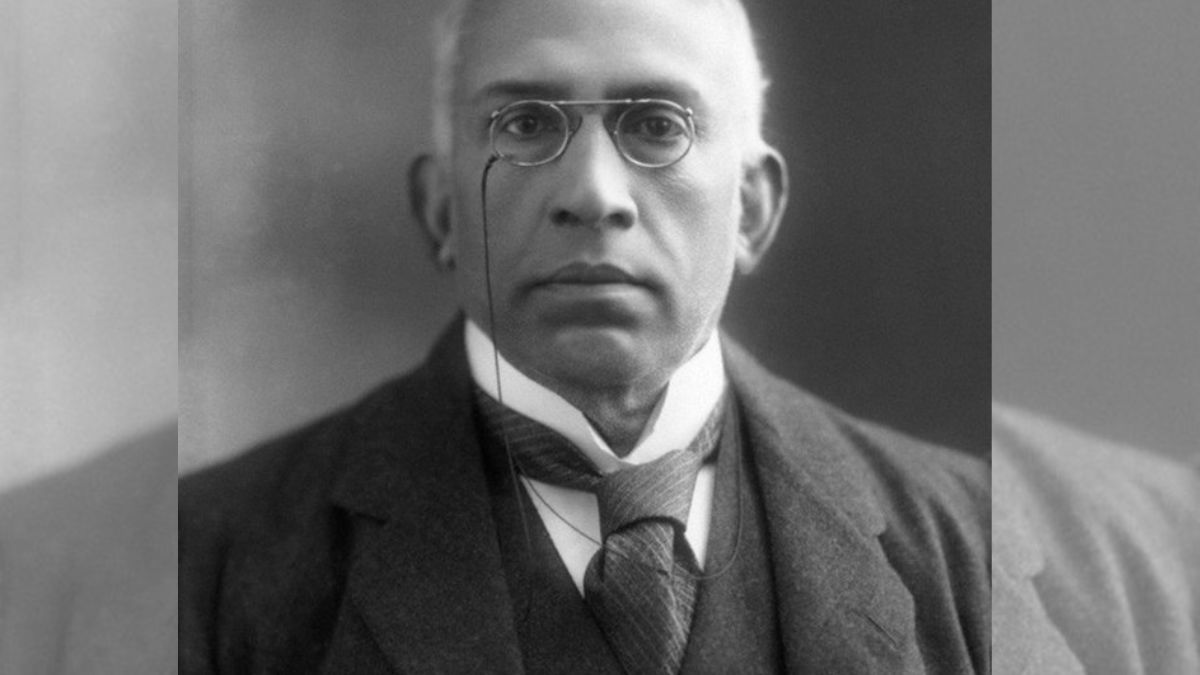Akshay Kumar’s Kesari Chapter 2: The Untold Story of Jallianwala Bagh hit the theatres today (April 18). The film depicts the aftermath of the brutal Jallianwala Bagh massacre of 1919, with Sir Chettur Sankaran Nair’s notable legal battle against the British Empire at its core.
Nair, an Indian jurist and nationalist, has been effusively praised by Prime Minister Narendra Modi. On Monday (April 14), he recalled the Kerala-born lawyer’s contribution to speaking up against British atrocities.
“Yesterday…marked the 106th anniversary of the Jallianwala Bagh massacre,” PM Modi said. “This aspect is manavta ke saath, desh ke saath khade hone ka buland jazbe ka. Is jazbe ka naam hai Sankaran Nair (This aspect relates to the spirit of humanity and standing with the country. The name of that spirit is Sankaran Nair). Nobody would have heard of him. He was a renowned lawyer and in those days, he held a very big post. He could have enjoyed all the luxuries, but inspired by Jallianwala Bagh, he raised his voice against British atrocities. He was kicked out of his post.”
PM Modi said every person in Punjab, Haryana, and Himachal Pradesh should know about Sankaran Nair and his contributions. “We must remember him, he is an inspiration and a symbol of our patriotic spirit.”
As Kesari Chapter 2 brings Nair to the spotlight, let’s take a look at who he was and his legendary courtroom battle against the British Empire.
Who was Sir Chettur Sankaran Nair?
Sir Chettur Sankaran Nair was a prominent jurist and statesman. He was born in 1857 in a wealthy family in the Mankara village of Kerala’s Palakkad district.
After earning a law degree from the Madras Law College, he started his practice in the Madras High Court in 1880. Four years later, Nair was appointed by the Madras government to the committee for an enquiry into the Malabar district, as per The New Indian Express (TNIE).
Impact Shorts
More ShortsThe lawyer remained firm in his beliefs, no matter the strength of the opposition – a trait that earned him the wrath of the British and unpopularity among his colleagues and peers, reported Indian Express.
The 2019 book, The Case That Shook the Empire: One Man’s Fight for the Truth about the Jallianwala Bagh Massacre, written by Nair’s great-grandson Raghu Palat and his wife Pushpa Palat, mentions that Edwin Montague, the Secretary of State for India, once referred to Nair as an “impossible person” who “shouts at the top of his voice and refuses to listen to anything when one argues, and is absolutely uncompromising”.
Kumar’s film is based on the book by Palats.
A liberal constitutionalist, Nair became the youngest president of Congress in 1897.
Rajasekharan Nair, retired professor of history, told The News Minute (TNM) that the eminent lawyer was one of the moderates, along with Gopalakrishna Gokhale and Surendranath Banerjee, in the Congress party.
“The moderates did not strive for quick freedom, but wanted to attain democracy in steps. They were afraid that if the colonial rule that had united people of different languages, religions and castes disappeared all too suddenly, then India would once again fall into a thousand different pieces,” Rajasekharan said.
Nair went on to serve as a permanent judge of the Madras High Court.
In 1912, he was knighted by the British Crown for his services to the Empire. Three years later, Nair became a member of the Viceroy’s Executive Council – one of the highest posts in British India – in charge of the Education portfolio.
He authored a dissent in the dispatches on Indian constitutional reforms in 1919, decrying the British rule in India and suggesting reforms, many of which were accepted, as per TNIE.
The same year, he resigned from the Viceroy’s Council to protest the horrific massacre in Punjab’s Amritsar, where British Brigadier-General Reginald Dyer ordered soldiers to fire upon an unarmed crowd of over 15,000 Indians gathered at Jallianwala Bagh .
The courtroom battle
Nair had differences with Mahatma Gandhi on several issues, including the caste system, according to the TNM report.
In 1922, he published Gandhi and Anarchy, a book where he expressed opposition to Gandhi’s methods of non-violence, civil disobedience, and non-cooperation to win India’s freedom from British rule, reported Indian Express.
Nair also blamed Michael O’Dwyer, the Lieutenant Governor of Punjab at the time of the 1919 Jallianwala Bagh massacre, for abetting the atrocity through his policies.
O’Dwyer, who had returned to England by then, sued Nair for defamation there. The case was heard before the King’s Bench in London for five and a half weeks, becoming the longest-running civil case then.
The all-English jury, headed by Justice Henry McCardie, did not try to hide their bias towards O’Dwyer. He won the defamation suit by a majority of 11 to one, with the sole dissent by the Marxist political theorist Harold Laski.
Nair was ordered to pay £500 and the expenses of the trial to O’Dwyer, who said he would waive the penalty if the Indian lawyer apologised.
Nair refused, instead choosing to pay the penalty.
As per Indian Express, the case against Nair, which came when the nationalist movement was gathering steam, underscored the bias of the British against Indians to protect their own.
Rajasekharan Nair told TNM, “Chettur is one of the few people who have worked hard to make India a parliamentary democratic republic.”
Nair passed away in 1934 at the age of 77. Some of his rulings as the Madras High Court judge, including upholding inter-caste and inter-religious marriages, confirm his credentials as a social reformer.
With inputs from agencies
)